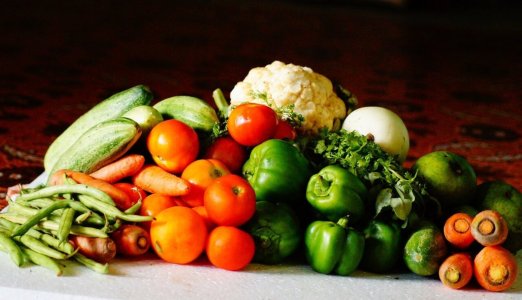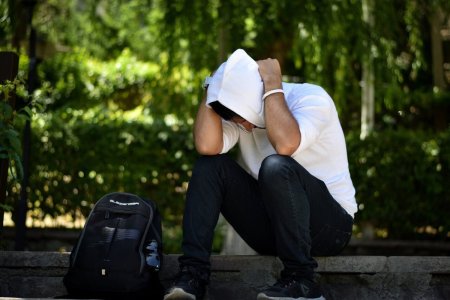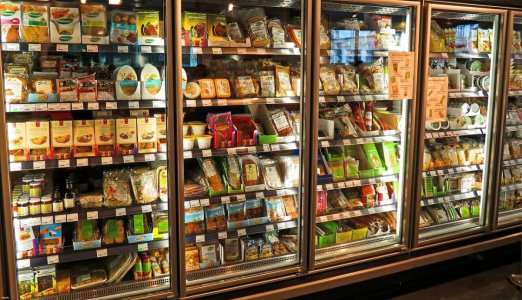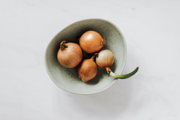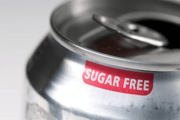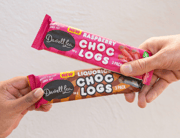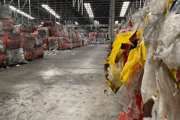Are you wasting food in the middle of a cost-of-living crisis? Find out what Aussies are doing wrong!
Have you had to throw out any food recently? Well, you're not alone. Let's find out why most Aussies are discarding food even with the current cost of living crisis.
Birds Eye, a food company, recently found that every week, a third of Aussies (32 per cent) toss out veggies like lettuce, carrots and broccoli.
Lettuce, being high in water content, wilts faster. Carrots, if kept near some fruits, can go bad due to a gas called ethylene. While broccoli needs to be dry and away from the same gas to stay fresh.
Interestingly, young Aussies, between 18-35 years, throw away the most veggies, while older ones above 55 throw away the least.
A report from a company called Finder said that grocery bills are stressing people out the most—many have even cut down on their shopping.
The report revealed a 9.2% increase in food and non-alcoholic costs. Of those surveyed, 78% reported decreasing their overall spending, and groceries accounted for half of those cutbacks.
When examining which age groups were most impacted, 70% of the younger generation expressed financial stress, while the slightly older generations registered at 60%.
From December 2022 to February 2023, groceries emerged as the most stressful expenditure.
Chris Ellis, a Senior Executive at Finder, said that life has become very pricey recently, and it's hard for Aussies to manage.
‘In the last few years and particularly over the last 12 months, the cost of living has soared dramatically, making it increasingly difficult for many Australians to afford their basic needs.’
So, if we're careful with money, why waste food? Aline Zaslavsky from Birds Eye highlights several reasons.
‘We’re dealing with three key issues at the moment: food waste, low vegetable consumption and the rising cost of living,’ she told news.com.au.
‘And an easy way to combat all of these is to use our freezers better.’
Birds Eye's study indicated that 25% of Australians are buying more frozen items, including fruits and vegetables. Of these, 71% did so primarily to save costs.
‘Addressing food waste starts at the shops. It’s about ensuring that what you’re buying is what you will use,’ she further pointed out.
Phoebe Dowling, the Chief of Sustainability at Simplot, which owns Birds Eye, advocates for freezing food instead of discarding it.
‘It’s great that we’re turning to the freezer aisle as an affordable way to get our veggie intake up, but it’s alarming that around a third of us are still throwing out fresh produce at a time when the cost of living is high,’ she said.
‘Strategically incorporating more frozen food into our meal planning has the potential to reduce food wastage in households.’
‘And we need more people to see it as a means to limiting the amount of produce we’re sending to the landfill.’
Gulyani, a food expert, said that there's a wrong idea that frozen veggies lose their goodness. In fact, they are often picked and frozen when they are freshest. She gave a cool tip: use frozen corn for salads or frozen kale for smoothies.
On your next grocery trip, how about checking out the frozen food aisle? Frozen foods are easy on the pocket and surprisingly tasty. Plus, they help cut down on waste.
And if you're thinking of ordering takeaway, take a quick look in your freezer first. With 20 Quick Recipes Made with Frozen Foods to help, you might find a familiar and delicious meal just waiting to be made.

Members, what are your thoughts on frozen food? Do they match up to fresh food for you? Let us know your opinions in the comments below!
Birds Eye, a food company, recently found that every week, a third of Aussies (32 per cent) toss out veggies like lettuce, carrots and broccoli.
Lettuce, being high in water content, wilts faster. Carrots, if kept near some fruits, can go bad due to a gas called ethylene. While broccoli needs to be dry and away from the same gas to stay fresh.
Interestingly, young Aussies, between 18-35 years, throw away the most veggies, while older ones above 55 throw away the least.
A report from a company called Finder said that grocery bills are stressing people out the most—many have even cut down on their shopping.
The report revealed a 9.2% increase in food and non-alcoholic costs. Of those surveyed, 78% reported decreasing their overall spending, and groceries accounted for half of those cutbacks.
When examining which age groups were most impacted, 70% of the younger generation expressed financial stress, while the slightly older generations registered at 60%.
From December 2022 to February 2023, groceries emerged as the most stressful expenditure.
Chris Ellis, a Senior Executive at Finder, said that life has become very pricey recently, and it's hard for Aussies to manage.
‘In the last few years and particularly over the last 12 months, the cost of living has soared dramatically, making it increasingly difficult for many Australians to afford their basic needs.’
So, if we're careful with money, why waste food? Aline Zaslavsky from Birds Eye highlights several reasons.
‘We’re dealing with three key issues at the moment: food waste, low vegetable consumption and the rising cost of living,’ she told news.com.au.
‘And an easy way to combat all of these is to use our freezers better.’
Birds Eye's study indicated that 25% of Australians are buying more frozen items, including fruits and vegetables. Of these, 71% did so primarily to save costs.
‘Addressing food waste starts at the shops. It’s about ensuring that what you’re buying is what you will use,’ she further pointed out.
Phoebe Dowling, the Chief of Sustainability at Simplot, which owns Birds Eye, advocates for freezing food instead of discarding it.
‘It’s great that we’re turning to the freezer aisle as an affordable way to get our veggie intake up, but it’s alarming that around a third of us are still throwing out fresh produce at a time when the cost of living is high,’ she said.
‘Strategically incorporating more frozen food into our meal planning has the potential to reduce food wastage in households.’
‘And we need more people to see it as a means to limiting the amount of produce we’re sending to the landfill.’
Gulyani, a food expert, said that there's a wrong idea that frozen veggies lose their goodness. In fact, they are often picked and frozen when they are freshest. She gave a cool tip: use frozen corn for salads or frozen kale for smoothies.
On your next grocery trip, how about checking out the frozen food aisle? Frozen foods are easy on the pocket and surprisingly tasty. Plus, they help cut down on waste.
And if you're thinking of ordering takeaway, take a quick look in your freezer first. With 20 Quick Recipes Made with Frozen Foods to help, you might find a familiar and delicious meal just waiting to be made.
Key Takeaways
- A recent survey by Birds Eye shows that 32% of Australians discard unused veggies amid the cost of living crisis.
- The research also shows that 45% of Australians aged 18-35 are most prone to wasting food.
- The report by comparison website Finder revealed that grocery costs stress many; food expenses are up by 9.2%.
- Birds Eye suggests that freezer use can reduce food waste and costs. 25% buy more frozen foods to save money.

